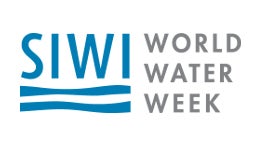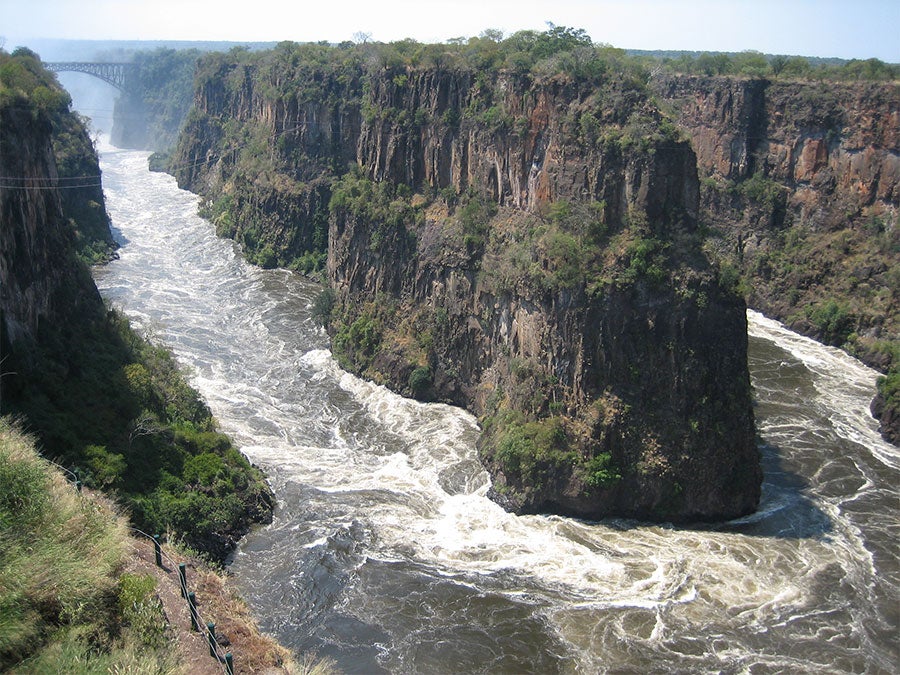 Water does not respect geopolitical boundaries. Hydrological systems are completely oblivious of international relations. This makes life complicated for the water managers, financiers, diplomats, and most of all – the water users
– around the world’s approximately 276 transboundary river basins, 63 of which are in Africa. Sixty percent of the world’s freshwater flows are in transboundary rivers, and 40% of the world’s population lives in their river basins. When water cuts across borders, it poses economic, financial, logistical and political challenges for people trying to manage and develop the resource.
Water does not respect geopolitical boundaries. Hydrological systems are completely oblivious of international relations. This makes life complicated for the water managers, financiers, diplomats, and most of all – the water users
– around the world’s approximately 276 transboundary river basins, 63 of which are in Africa. Sixty percent of the world’s freshwater flows are in transboundary rivers, and 40% of the world’s population lives in their river basins. When water cuts across borders, it poses economic, financial, logistical and political challenges for people trying to manage and develop the resource.
Climate change is

by eight countries: Angola, Botswana, Malawi,
Mozambique, Namibia, Tanzania, Zambia,
and Zimbabwe.
Photo Credit: CIWA / World Bank
The World Bank is supporting its client countries through three major responses.
1. Promote information and data sharing.
Transboundary cooperation allows expansion of the information and knowledge base on weather and climate phenomena; collaboration among countries in making strategic regional and national decisions in the face of climate variability and long-term climate change; and effective and efficient dissemination of processed information to vulnerable populations.
For example, in Central Asia, the World Bank is supporting efforts to strengthen national and regional hydrological and meteorological information systems that will improve accessibility, reliability, and analytical capacity to use water resource information for improved water resources planning, monitoring, and management.
2. Promote basin-wide planning and development of strategic natural and man-made infrastructure.
Transboundary cooperation allows countries to advance sound and sustainable regional and national infrastructures for storing, regulating, and exploiting their water resources. As a result, these countries will be able to reduce their vulnerability in the face of increasing climate variability and shifting long-term water availability trends.
For example, in the Niger Basin, the World Bank contributes to the funding of the Kandadji Program, which involves construction of the Kandadji dam and investments to increase power-generation capacity, boost agribusiness, increase irrigation, and support community development.
3. Strengthen the range of institutions needed to implement effective cooperative adaptation.
Transboundary cooperation allows countries to develop a strong foundational institutional framework for effective sharing of information and collaboration on sustainable infrastructure critical to reducing climate disaster risk and mitigating environmental vulnerability.
In the Zambezi Basin, the World Bank, through the CIWA program, is supporting the Zambezi Watercourse Commission in its effort to develop a basin-wide master plan, a basin-level information platform, and a flood-forecasting and early warning system.
In another example, the World Bank acts as a neutral broker in the Indus Basin - we helped establish the Permanent Indus Commission (PIC) which has played an invaluable role in the Indus Water Treaty’s implementation since 1960 by managing questions and issues that continuously arise as the two countries develop this shared river and ensure compliance with the treaty. In fact, it is in large part due to the overwhelming success of the PIC to negotiate, monitor, and manage, that stable cooperation over water has existed over the last half century despite two wars having taken place between the two countries in that time period.
To learn more, read “Water for Development: Responding to the Challenges.”
If you are interested in learning more about transboundary cooperation, the following sessions at World Water Week might interest you:
Earth Observation supporting water resources management for sustainable development
Wednesday, August 26, 9:00-10:30 (FH 307)
#SIWISofa: Raising the Profile of Water Towards COP21
Wednesday, August 26, 11:00 - 11:30 (Exhibition Hall A)
High Level Panel: Raising the Profile of Water Towards COP21
Wednesday, August 26, 14:00-15:30 (NL Auditorium / Aulan)
Livestream available
Follow us online: www.worldbank.org/worldwaterweek
On twitter @worldbankwater and hashtag #wwweek


Join the Conversation